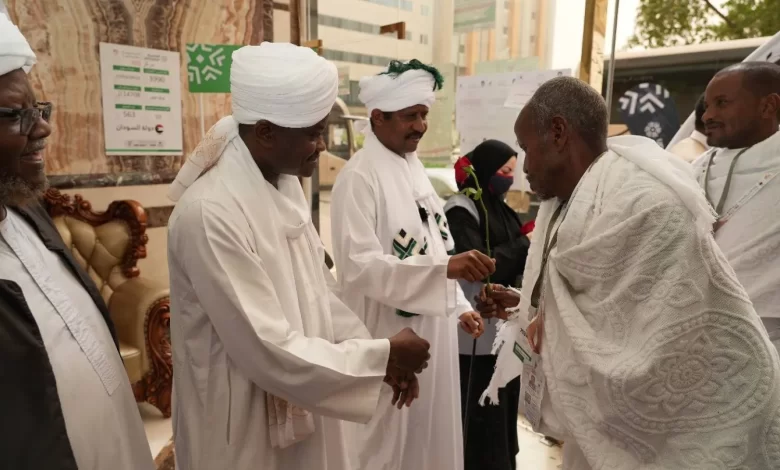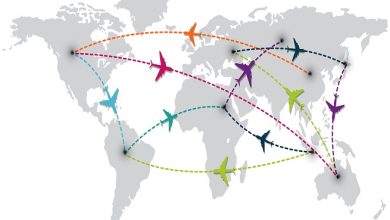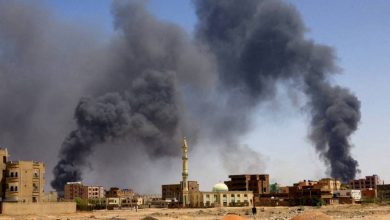Improved Security in Several Regions Doubled the Number of Pilgrims

Sudan Events – Agencies
Dr. Mohammed Abdul Wahab, Secretary of the Hajj and Umrah Secretariat in Sudan, confirmed that improved security in the country has doubled the number of pilgrims coming from areas that previously experienced instability. He also praised the level of facilitation and warm reception experienced by Sudanese pilgrims upon their arrival in Saudi Arabia.
Speaking to Asharq Al-Awsat, Abdul Wahab revealed that the number of Sudanese pilgrims this season reached 11,500, representing various cities—including those suffering from unstable security conditions—out of a total quota of 32,000 pilgrims allocated before the outbreak of war. He noted that the unstable security situation and the dangers of traveling to Port Sudan Airport and Suakin Port had significantly reduced the number of applicants for the Hajj mission over the past two years.
He added that the remarkable improvement in the journey for Sudanese pilgrims compared to last year was due to the improved security situation in cities such as Khartoum, Al-Jazira, White Nile, Blue Nile, and Sennar, which contributed to a significant increase in the number of pilgrims coming from these areas.
Challenges Facing Pilgrims from Darfur and Kordofan
Dr. Abdul Wahab explained that all pilgrims are gradually arriving in Saudi Arabia via sea and air through Port Sudan, except for one group of 48 pilgrims from West Darfur. They are traveling to Jeddah from Addis Ababa via N’Djamena International Airport in Chad due to the unstable security situation in their state.
He also mentioned that pilgrims from West Kordofan opted to travel overland to Northern State and then to the Red Sea region using safe routes, considering the insecurity in their area. He noted that the Sudanese Hajj mission includes injured individuals and families of martyrs, including those who lost loved ones in the conflict.
Digital Platform for Hajj Applications
Regarding the application process, Dr. Abdul Wahab stated that all procedures are conducted electronically—from application to payment—thanks to a digital platform developed through the collaboration of several government agencies. The system is linked to the Ministry of Interior using national ID numbers and passport data.
He explained, “When a Sudanese citizen submits a Hajj application, they receive a tracking number, which is then used for electronic payment and visa issuance.”
On the coordination of pilgrim travel from Sudanese cities to Port Sudan, he said, “We group pilgrims into batches, each consisting of 48 individuals, and assign an administrative supervisor to coordinate their assembly at designated gathering points and arrange modern buses for overland transport to Port Sudan ahead of their departure to Jeddah.”
He added that 58% of pilgrims are arriving via sea and 42% by air, noting that the flight from Port Sudan to Jeddah takes no more than 45 minutes, while the sea journey from Suakin Port takes about 10 hours.
Warm Welcome
The Sudanese official praised the care, attention, and hospitality extended to pilgrims upon arrival in Saudi Arabia. He said, “A warm welcome awaited the pilgrims, who were received with flower bouquets and Arabic coffee at both the sea and air entry points in Jeddah. Such hospitality is not surprising, given the generosity of the Saudi people and the authorities’ dedication to easing the journey for pilgrims.”
He added that Saudi Arabia has mobilized all material and human resources to serve pilgrims, stating, “Hajj operations have seen tremendous development year after year across all technological and service levels, making the pilgrimage a very smooth experience.”
Bridging Divides
The Secretary of the Hajj and Umrah Secretariat in Sudan praised Saudi Arabia’s efforts to mediate and bring together conflicting parties in Sudan. He affirmed the Kingdom’s continuous efforts to ensure that Sudan becomes secure, stable, and prosperous, stressing that Saudi Arabia’s support extends beyond the current crisis and spans decades of assistance in political, social, and humanitarian domains.
For his part, Omar Radwa Mohammed, one of the pilgrims injured in the Sudanese conflict, said that performing Hajj had long been a dream. He had been wounded with two bullets—one near his eye and the other in his shoulder—during the war and feared that his injuries would prevent him from realizing his spiritual goal. However, those fears faded, and his dream came true. He praised the level of support and care he received throughout his journey to Mecca, highlighting the warm welcome from the moment he set foot on Saudi soil.



